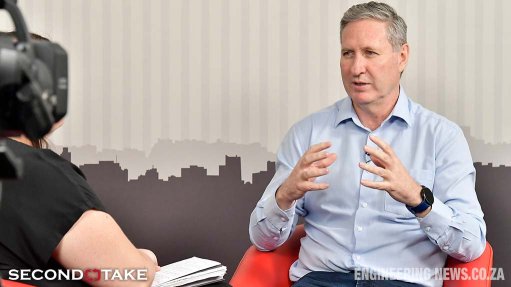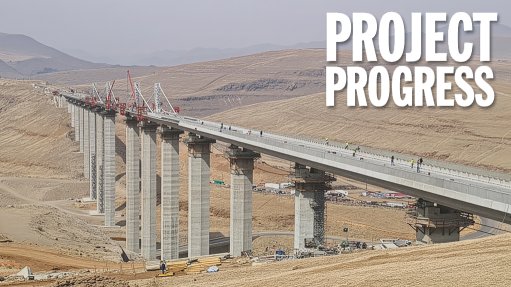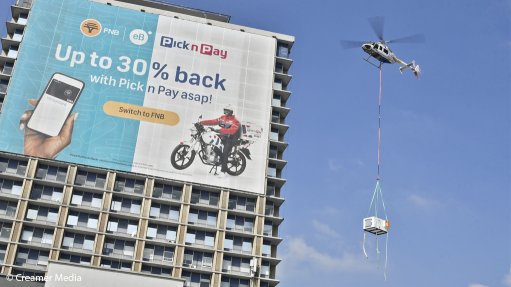South Africa must diversify into high-value exports, connect to region to boost growth
For South Africa to achieve economic growth that leads to improved wellbeing for its citizens, it needs to convert the primary commodities it produces into high-value exports and develop a stronger relative comparative advantage in more competitive goods than only basic metals.
Further, the country needs to connect to the continent and the range of opportunities through the African Continental Free Trade Area. Intra-African regional trade is low, and South Africa has a strong economy that can generate synergies that can contribute to strong regional growth.
These were the key findings for the country in the African Transformation Index (ATI) launched by policy research organisation the African Centre for Economic Transformation (ACET) on May 20.
The ATI measures economic transformation by comparing 30 African countries to so-called early transformer economies in Asia and Latin America in terms of diversification of products and exports, export competitiveness, productivity, technology upgrading, and human wellbeing.
South Africa scored well in the index, and was a highly transformed economy, achieving an overall score of 60.4, on a scale of 0 to 100, and had improved this by 3.1 points between 2000 and 2020, said ACET Research, Policy and Programmes director Dr Emmanuel Owusu-Sekyere.
"South Africa exceeded the African average in four subindices, except for diversification of its products and exports. In this subindex, the country retrogressed by 11.7 points to 63.8 points, coming behind countries like Tunisia, Mauritius, Eswatini, Morocco and Egypt," he added.
The key reason for the decline is the lower manufacturing value addition, with Eswatini, for example, increasing manufacturing value added during the period and South Africa's manufacturing value added being on a downward slope from 2000 to 2020.
After the Global Financial Crisis, manufacturing value addition in the country had been on a downward trend, with the manufacturing value addition in Tunisia, Mauritius, Eswatini, Morocco and Egypt having outperformed that of South Africa, he said.
In the export space, South Africa's relative comparative advantage is low in processed, semi-processed and final goods and services, compared with Thailand, which was one of the early transformer economies analysed for the index.
South Africa had a strong relative comparative advantage in basic metals, which were primary commodities in nature, he added.
There is a need for the country to examine its trade relations, and whether they are boosting its manufacturing sector, helping to create jobs for the population, addressing high youth unemployment and triggering growth, or whether they are driving a downward slope as has been the case for a while.
"The country should aim to boost its export competitiveness and start targeting high-growth markets," he advised.
Meanwhile, in terms of productivity, South Africa scored 84, which is an improvement of 13.8 points over the two decades, despite all its challenges such as energy and skills shortages, coming only next to Mauritius in the sample of 30 African countries.
Further, value added by worker in South Africa also doubled over the period from 2000 to 2020. However, in the manufacturing and industrial sectors, value added by workers has seen a steep decline after the onset of the commodity supercycle in 2011.
Labour lost from agriculture was leapfrogging the manufacturing sector into the services sector, which now accounted for 60.9% of the total labour force. The sector is highly informal, and it is difficult to formulate policy for a large informal sector, said Owusu-Sekyere.
Employment in industry has declined from 23.6 in 2005 to 14.8% in 2020.
"The services sector is booming. We must see how we can generate long-term, sustainable decent jobs for our burgeoning young population."
Further, in terms of technology upgrading, South Africa is tech-savvy, achieving a score of 64, an increase of 7.8 points since 2000, coming next to Morocco, Nigeria and Tunisia.
However, what made Tunisia and Morocco superior in terms of technology upgrading was that they were high-technology intensive in terms of production, compared with South Africa, which has mid-level technology-intensive production, and basic metals constituted the largest proportion of South African exports, he noted.
There were several opportunities for South Africa, including under diversification. For example, growing agriculture can support agroprocessing initiatives that can lead to light manufacturing industrialisation, he illustrated.
"We can also talk about industry without smokestacks. South Africa has a sophisticated and world class tourism sector.
"Further, in terms of information and communications technology, the country has stalled a bit. Similarly, in terms of technology progress, it has also stalled a bit and this needs to be revived again. It does have strong logistics capabilities as well," he said.
South Africa remains the strongest and best-performing economy in terms of economic transformation in sub-Saharan Africa. Most of the countries that performed better than South Africa are in the north of the continent.
"South Africa needs to convert its primary commodities into high-value exports. It needs to connect with the wider continental opportunities, and it needs to create opportunities for decent work through education, with ample jobs for our young and burgeoning population.
"Countries that are able to grow at a steady rate are those that are able to improve technological progress through research and development. We need to look at research and development critically and how it can support startups," Owusu-Sekyere said.
However, countries could not advance in technology without sufficient depth of human resources development. Deep human resources were important in the process of economic transformation, said ACET chairperson and former Finance Minister Tito Mboweni.
"As we harness technology, we will gain export competitiveness in the process," he said.
Comments
Press Office
Announcements
What's On
Subscribe to improve your user experience...
Option 1 (equivalent of R125 a month):
Receive a weekly copy of Creamer Media's Engineering News & Mining Weekly magazine
(print copy for those in South Africa and e-magazine for those outside of South Africa)
Receive daily email newsletters
Access to full search results
Access archive of magazine back copies
Access to Projects in Progress
Access to ONE Research Report of your choice in PDF format
Option 2 (equivalent of R375 a month):
All benefits from Option 1
PLUS
Access to Creamer Media's Research Channel Africa for ALL Research Reports, in PDF format, on various industrial and mining sectors
including Electricity; Water; Energy Transition; Hydrogen; Roads, Rail and Ports; Coal; Gold; Platinum; Battery Metals; etc.
Already a subscriber?
Forgotten your password?
Receive weekly copy of Creamer Media's Engineering News & Mining Weekly magazine (print copy for those in South Africa and e-magazine for those outside of South Africa)
➕
Recieve daily email newsletters
➕
Access to full search results
➕
Access archive of magazine back copies
➕
Access to Projects in Progress
➕
Access to ONE Research Report of your choice in PDF format
RESEARCH CHANNEL AFRICA
R4500 (equivalent of R375 a month)
SUBSCRIBEAll benefits from Option 1
➕
Access to Creamer Media's Research Channel Africa for ALL Research Reports on various industrial and mining sectors, in PDF format, including on:
Electricity
➕
Water
➕
Energy Transition
➕
Hydrogen
➕
Roads, Rail and Ports
➕
Coal
➕
Gold
➕
Platinum
➕
Battery Metals
➕
etc.
Receive all benefits from Option 1 or Option 2 delivered to numerous people at your company
➕
Multiple User names and Passwords for simultaneous log-ins
➕
Intranet integration access to all in your organisation

















